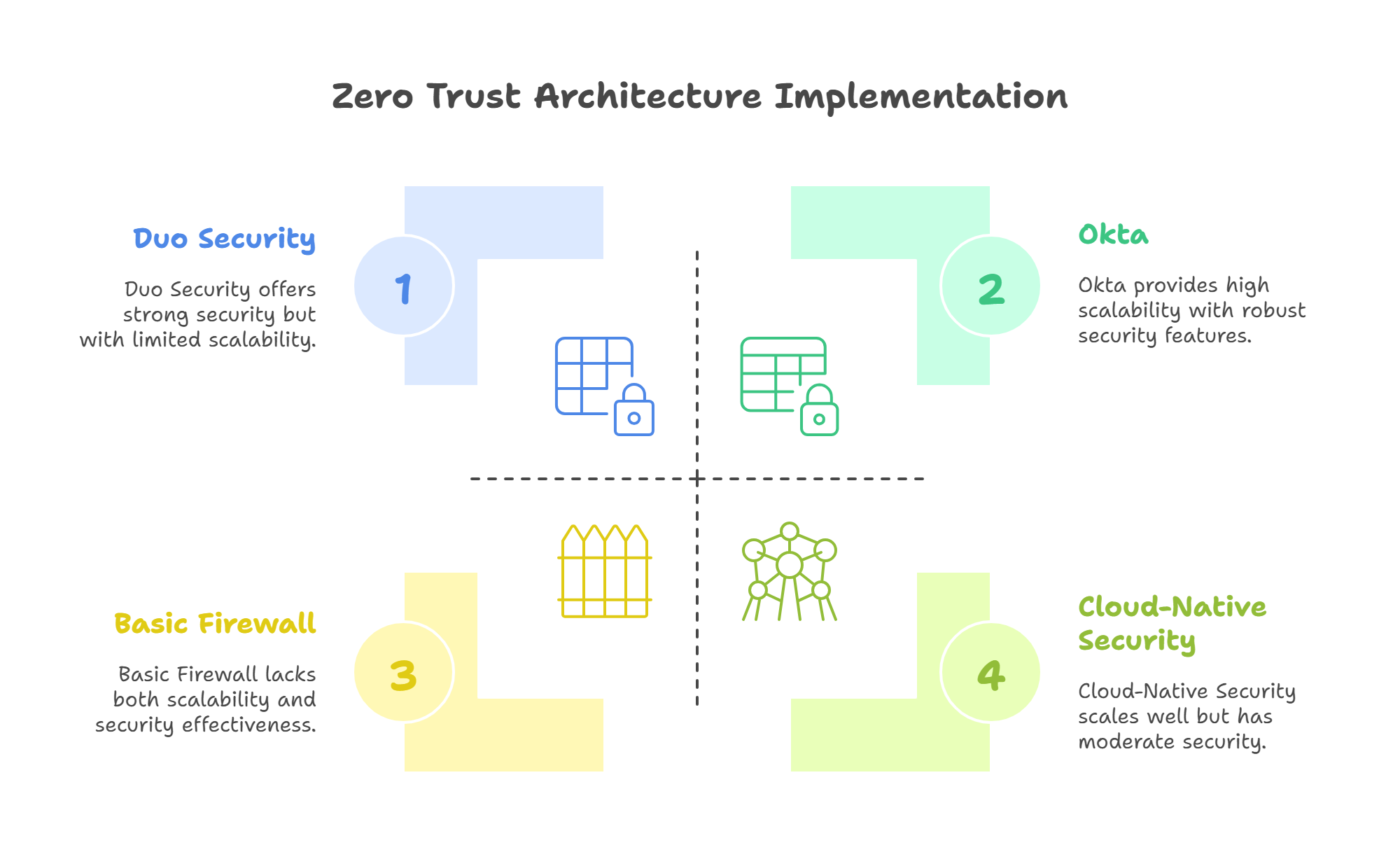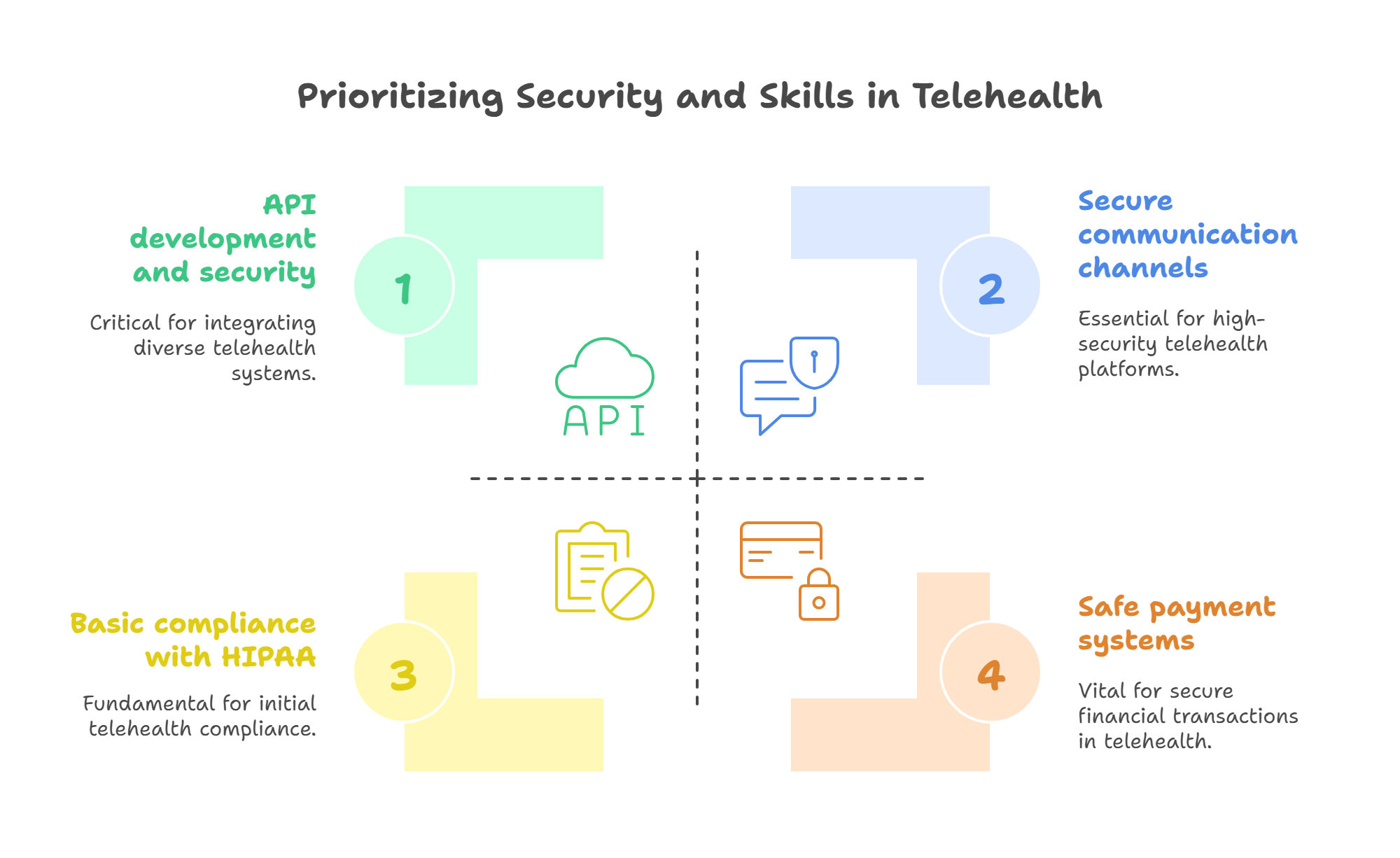In today’s digital world, protecting your online business is more important than ever. Cyber threats are growing, and we need better ways to stay safe. This article looks at new security trends and offers tips for business owners to secure their digital operations.
Why Online Business Security Is Important
Cybercrime is a huge threat to businesses worldwide. By 2025, experts predict cybercrime costs will hit $10.5 trillion yearly, up from $3 trillion in 2015.
Sadly, 60% of small businesses shut down within six months of a cyberattack. This highlights the need for strong security to keep businesses running smoothly and customers trusting you.

Emerging Trends in Online Business Security
Zero Trust Architecture (ZTA)
ZTA works on the idea of “never trust, always verify.” This means every access request is checked, authorized, and encrypted.
Why It Matters: As more people work remotely and use cloud services, old security methods don’t cut it. ZTA offers businesses a flexible way to protect their data and systems.
How to Use It: Tools like Okta and Duo Security help businesses apply ZTA. These tools can scale to meet the needs of businesses of all sizes.
Decentralized Identity Verification
Decentralized systems, like blockchain-based identity checks, let users control their data.
Why It Matters: By cutting down on big data repositories, businesses can lower the risk of data breaches.
How to Use It: Platforms such as Civic and uPort offer decentralized identity solutions that protect user privacy.
AI-Driven Threat Detection with Human Oversight
AI quickly finds unusual patterns and threats, but human experts make sure the results are correct.
Why It Matters: Combining AI with human input strengthens defenses against cyber threats.
How to Use It: Companies like Darktrace and CrowdStrike use AI and expert analysis to detect and respond to security risks.
Security-as-a-Service (SECaaS)
SECaaS offers cloud-based security tools, letting businesses outsource their cybersecurity needs.
Why It Matters: For small businesses, SECaaS offers a cost-effective way to access top-tier security without in-house experts.
How to Use It: Services like Cloudflare, Microsoft Defender for Business, and Trend Micro Cloud One offer flexible security options for businesses of all sizes.
Security Needs:
-
Encrypted video streaming
-
Verified sitter identities
-
Secure location tracking
Skills Needed:
-
Mobile app development
-
Knowledge of cybersecurity protocols
-
Understanding of data protection rules
Considerations: Trust is key. Clear privacy policies and third-party security certifications build credibility.

Digital Coaching and Therapy Platforms
Market Insight: The telehealth market will grow from $186.41 billion in 2025 to $791.04 billion by 2032.
Security Needs:
-
Compliance with HIPAA and GDPR
-
Secure communication channels
-
Safe payment systems
Skills Needed:
-
Understanding of healthcare data rules
-
API development and security
-
Data encryption techniques
Considerations: Privacy is crucial. End-to-end encryption and clear communication about security measures help build trust.
Micro-SaaS Tools for E-Commerce Automation
Market Insight: E-commerce continues to grow, with platforms like Shopify hosting millions of merchants.
Security Needs:
-
Secure API integrations
-
OAuth token management
-
Compliance with PCI-DSS standards
Skills Needed:
-
Expertise in SaaS development
-
Knowledge of e-commerce platforms
-
Understanding of data privacy laws
Considerations: Focus on secure coding practices and regular security checks to maintain user trust and meet industry standards.
FAQs on Online Business Security
Q: What is the most important security feature for online startups?
A: Multi-factor authentication (MFA) is essential. It helps prevent unauthorized access.
Q: Can small businesses afford cybersecurity?
A: Yes, there are affordable tools like Let’s Encrypt, Bitwarden, and Cloudflare for strong protection.
Q: How can entrepreneurs learn cybersecurity basics?
A: Online resources like the Google Cybersecurity Certificate, Cybrary courses, and books like “The Basics of Hacking and Penetration Testing” by Patrick Engebretson can help.
Sample Security Budget for Startups
| Security Feature | Monthly Cost Estimate |
|---|---|
| SSL Certificate (Let’s Encrypt) | $0 |
| MFA Tools (Authy, Google Authenticator) | $0 |
| Web Application Firewall (Cloudflare) | $20 |
| Security Monitoring (SECaaS) | $30–$50 |
| Secure Backup & Storage | $10–$15 |
| Total Estimate | $60–$85/month |
For a business earning $10,000 monthly, this security budget can help protect your digital assets and customer data.


